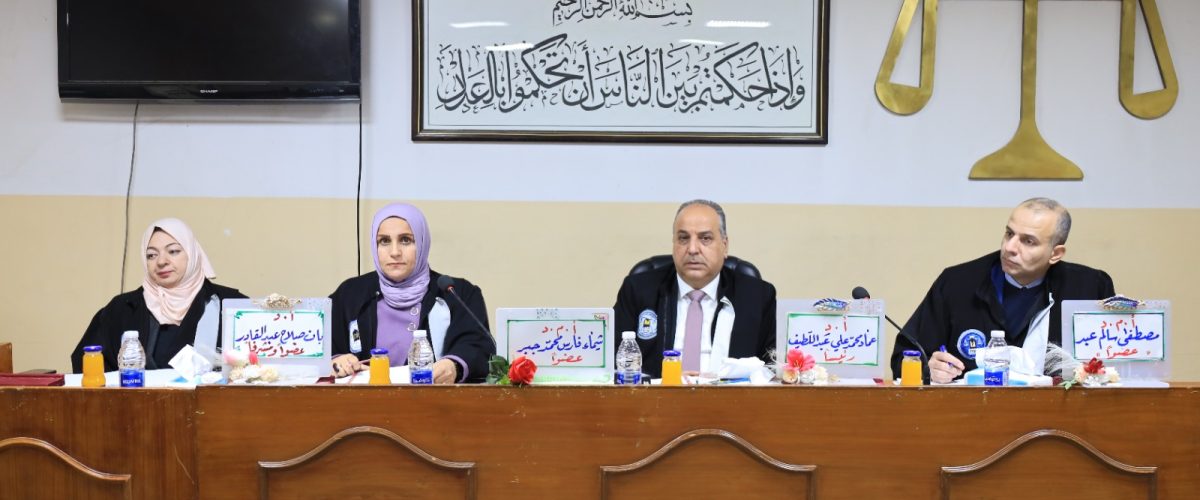The College of Law at the University of Baghdad discussed a master’s thesis in the field of public law by the student Zainab Abdul Salam Jamil, titled “The Impact of Nationality on Tax Liability According to the Iraqi Income Tax Law No. 113 of 1982, as Amended.” The discussion took place on Sunday, January 12, 2024, in the College’s Model Court Hall.
The discussion committee consisted of the following members:
- Prof. Dr. Imad Mohammad Ali (Chairman)
- Asst. Prof. Dr. Mustafa Salem Abdul (Member)
- Asst. Prof. Dr. Shaimaa Fares Mohammed (Member)
- Prof. Dr. Ban Salah Abdul Qader (Member and Supervisor)
The thesis aimed to highlight the role of nationality in the emergence of tax obligations from the taxpayer’s side, how this principle serves as the basis for the state’s right to collect taxes, the financial obligations imposed on those subjects to this principle, and the impact on the legal rules stipulated in tax legislation on income. It also examined the practical reality, which includes the scope of work of the tax administration and the implications of agreements and differences with the concept of nationality.
The thesis included two chapters:
- Chapter 1: The impact of nationality on the mechanisms of tax liability.
- Chapter 2: Issues related to applying the nationality criterion in imposing income tax.
The thesis concluded with several recommendations, the most important of which were:
- Enacting a tax law for e-commerce alongside the Iraqi Electronic Signature Law No. 78 of 2012, which explicitly addresses the taxation of income resulting from e-commerce transactions without leaving room for personal interpretation.
- Defining the tax sovereignty of each country through international agreements and unifying the principles adopted by countries in imposing taxes to prevent double taxation.
- Revising the tax rate imposed, particularly for limited liability companies and private and mixed joint-stock companies, regardless of their nationality, at a second rate of (15%).
-
Activating modern collection methods by implementing a tax identification number for each taxpayer, in line with modern developments to prevent tax evasion.



